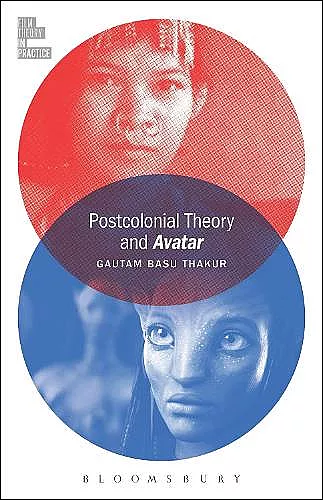Postcolonial Theory and Avatar
Format:Paperback
Publisher:Bloomsbury Publishing PLC
Published:17th Dec '15
Currently unavailable, and unfortunately no date known when it will be back

An explanation of postcolonial film theory and how it explicates James Cameron's film.
The Film Theory in Practice series fills a gaping hole in the world of film theory. By marrying the explanation of a film theory with the interpretation of a film, the volumes provide discrete examples of how film theory can serve as the basis for textual analysis. The second book in the series, Postcolonial Theory and Avatar offers a concise introduction to postcolonial theory in jargon-free language and shows how this theory can be deployed to interpret James Cameron’s high-grossing, immensely popular, and critically acclaimed 2009 film. Avatar is widely celebrated for its politically and culturally sensitive critique of the “West’s” neocolonial wars and exploitation of the “global south” – an allegory for (neo)colonialism – and for highlighting the plight of tribal communities throughout the world (for instance, the case of the Dongriah Kondh tribe of India). At the same time, it has been also criticized for repeating the colonialist fantasy of saving natives doomed by imperialist aggression. Intervening in this debate over how to read the film, Basu Thakur focuses on issues of representations, discourse, subalternity, and subjectivity, all of which have been central to postcolonial theory and postcolonial analyses of culture. This history will help students and scholars who are eager to learn more about this important area of theory and bring the concepts of postcolonial theory into practice through a detailed interpretation of the film.
Adopting a fresh perspective as well as inviting a sharp critical stance, the book is a pleasurable and excellent read. * Postcolonial Studies *
What makes this book particularly compelling is the author’s strong voice. Basu Thakur dismantles and revamps postcolonial scholarship with firm conviction, and his film analysis is driven by a desire to uncover what he sees as the truth behind Avatar’s beguiling surface. * CINEJ Cinema Journal *
This erudite and brilliantly provocative book takes us on a familiar journey through the history of post-colonial theory in order to end up in a new place: a critique not of colonialism but instead of the new Eurocentric neo-liberal, globalized subject. Basu Thakur teases us by juxtaposing James Cameron’s Avatar with Michael Haneke’s Caché. Of these two, it is Caché that surprisingly ends up with the post-colonial laurels for expressing what it is to be 'truly imagined by other worlds,' whereas Avatar is dismissed for re-presenting the fantasy of otherness that supplements the West’s on-going performance of its own politically correct, neo-liberal subjectivity. This book will outrage even as it informs, adding new fire to the criticism of what Basu Thakur calls 'the West’s unending imaginative vacuity about otherness.' * Henry Krips, Professor of Cultural Studies and Andrew W. Mellon All-Claremont Chair of Humanities, Claremont Graduate University, USA *
Straightforwardly written, yet sufficiently critical, Basu Thakur stakes a claim for the resurrection of postcolonial theory as a critical praxis, one that can help us examine the veiled strategies of othering that lay not so much at the margins, but at the very heart of our global Western imagination. * Pepita Hesselberth, Assistant Professor of Film, Leiden University, The Netherlands, and author of Cinematic Chronotopes: Here, Now, Me *
Cogent and lucid, this book is an original contribution to postcolonial theory, and the reading of Avatar follows unexpected avenues toward a new understanding of one of the most popular films of recent decades. * James Morrison, author of Passport to Hollywood and Roman Polanski *
ISBN: 9781628925630
Dimensions: unknown
Weight: 230g
208 pages